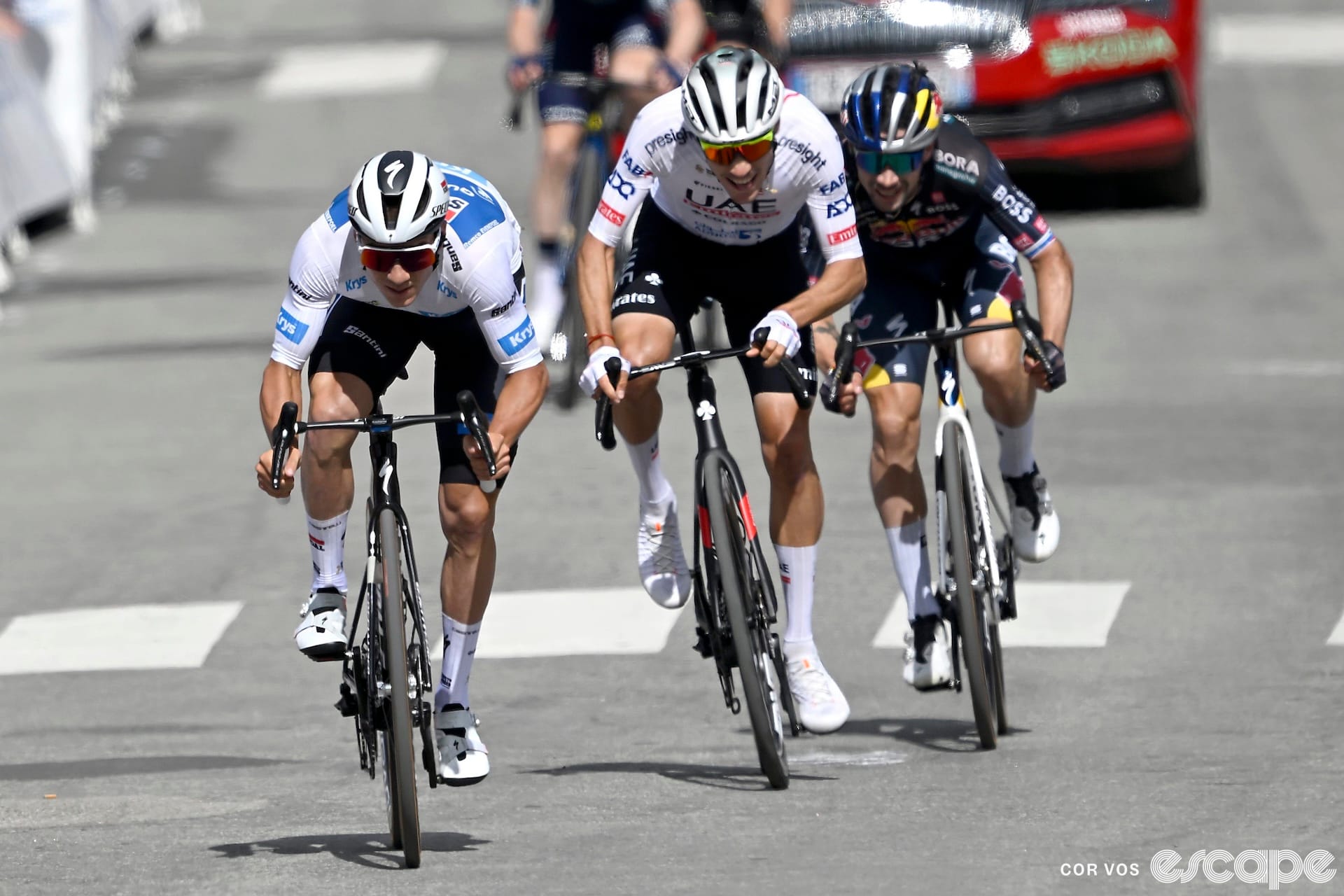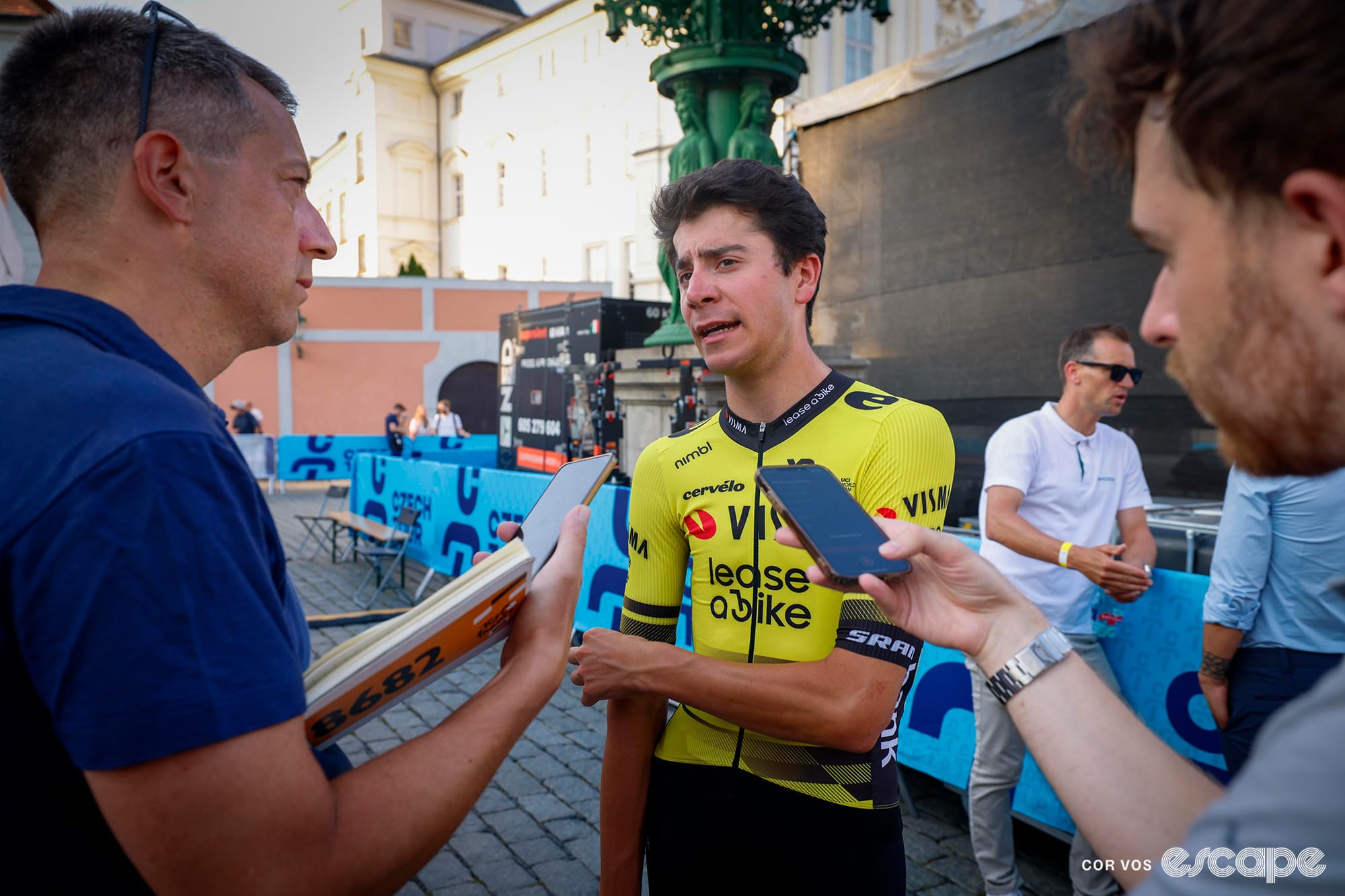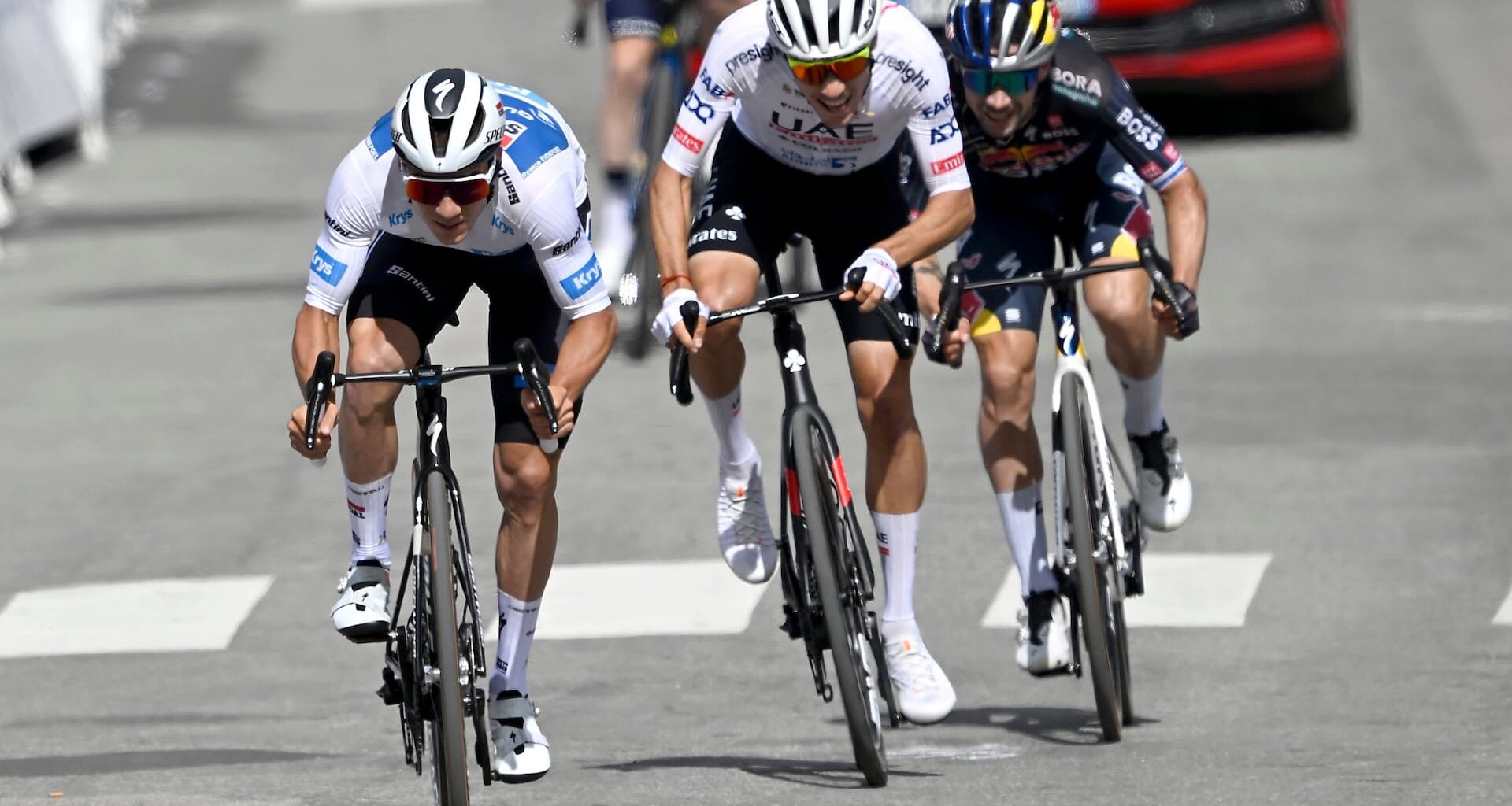
It’s not your imagination, and what’s driving the recent trend may lead to a formal transfer market for pro cycling.
Remco Evenepoel, Juan Ayuso and Primož Roglič all switched teams before their deals expired.

Cor Vos, Kristof Ramon
The 2025 road season was the cycling summer of breaking contracts and challenging the way the sport has functioned and operated for decades. From Remco Evenepoel to Juan Ayuso, and Derek Gee to Cian Uijtdebroeks (again), the once-sacred contract has been ripped apart on a number of occasions, upending the rules and laws that govern the sport. In the wake of the chaos is the sport’s governing body, the increasingly powerless International Cycling Union (UCI), as more and more it is becoming apparent that its rules and wishes butt up against the realities of European employment laws which often contradict the UCI’s and favour freedom of movement.
Cian Uijtdebroeks completes surprise transfer to Movistar
The 22-year-old leaves his Visma-Lease a Bike contract two years early.

“It’s a little bit underground, but there is indeed a system of riders moving from one team to another where there is financial remuneration. It’s not like in football where there is a clear transfer system, but cycling definitely now has a transfer market,” Dries Smets, senior vice president of the Wasserman agency, told Escape Collective. Wasserman represents Lotte Kopecky, Julian Alaphilippe and Tim Merlier, among other pros.
Escape spoke with half a dozen agents and several WorldTour managers for this story to get an understanding of how cycling’s employment landscape has taken such a dramatic twist, and to paint a picture of how rider transfers could look in the not-too-distant future. The overwhelming feeling from within the corridors of power, inside team buses, and from the agents who thrash out these contracts via Zoom meetings and in mid-rated European cafes is that change is not only coming but has already arrived. The push now is for a fully regulated system to be put into place.
“Cycling’s transfer system right now is highly individualised, and highly risk-orientated. It’s strange, complex and a very bad [system], but there is one in place,” said one agent, who wished not to be named to protect relationships. “We’re not in slavery times anymore; as a worker you can choose who you want to work for, and you can always choose to cease working for someone, though obviously depending on that situation that’s not without consequences. What we need now is a clearer system that makes that process easier.”
Two sides of the coin: Longer deals, broken
The flurry of high-profile mid-contract transfers is not just some recency bias we’re all experiencing – these kinds of moves were very rare up until a few seasons ago, and though they are certainly not widespread now, they are increasingly frequent. “It’s definitely more common than ever before,” said Smets. “The biggest reason why is that riders are signing long-term contracts – four, five, six-year deals, where in the past you only had two or maximum three-year deals. And if you sign a long term contract, there’s a greater risk that circumstances change during a contract’s duration.”
This post is for paying subscribers only
Subscribe now
Already have an account? Sign in
Did we do a good job with this story?
👍Yep
👎Nope

